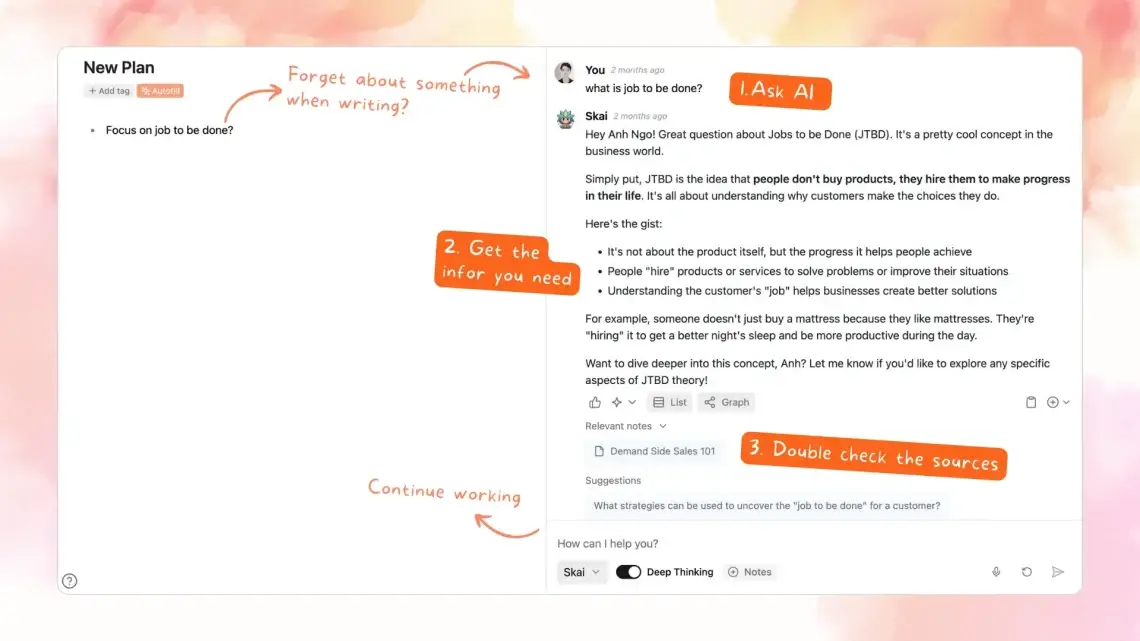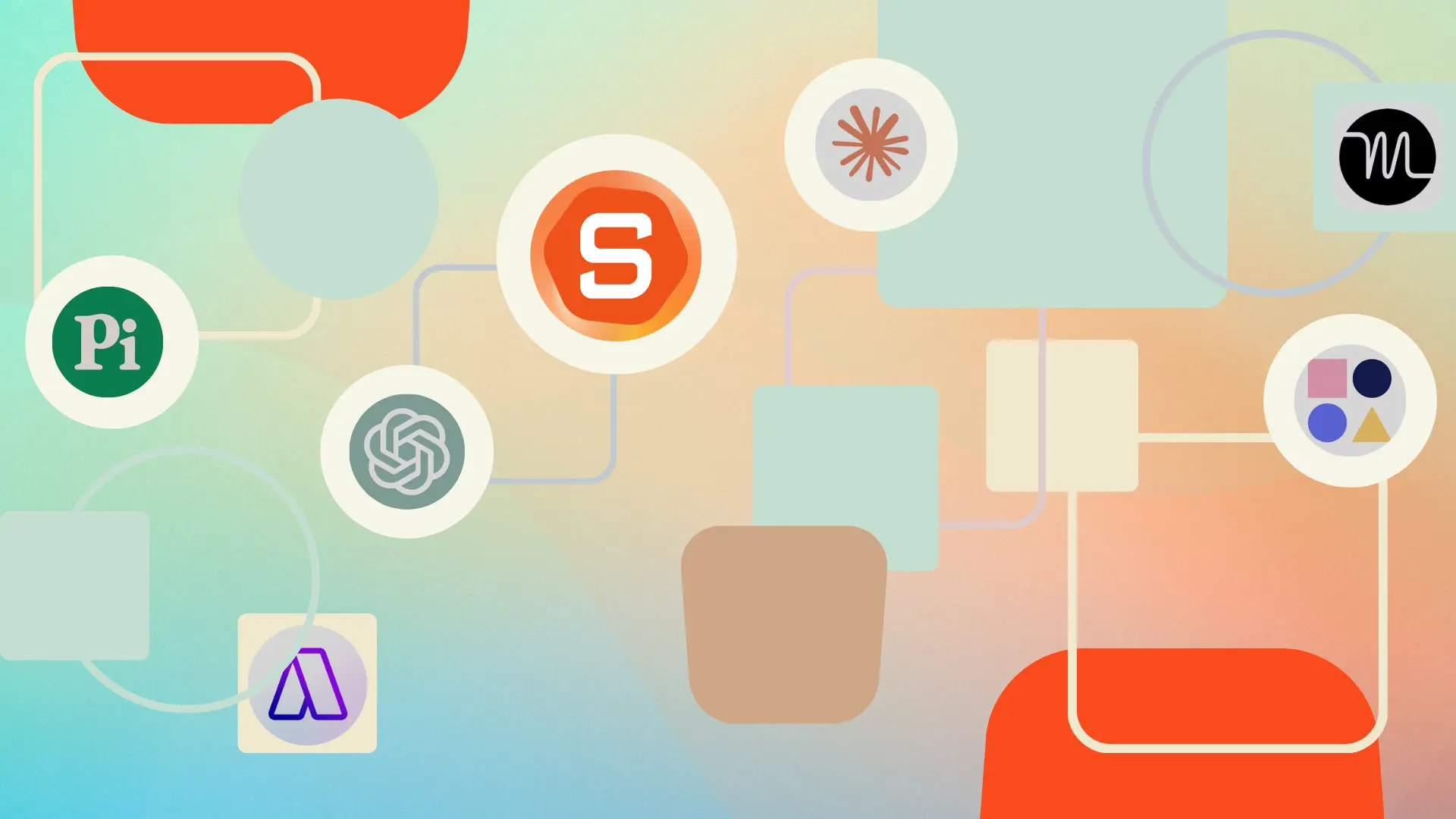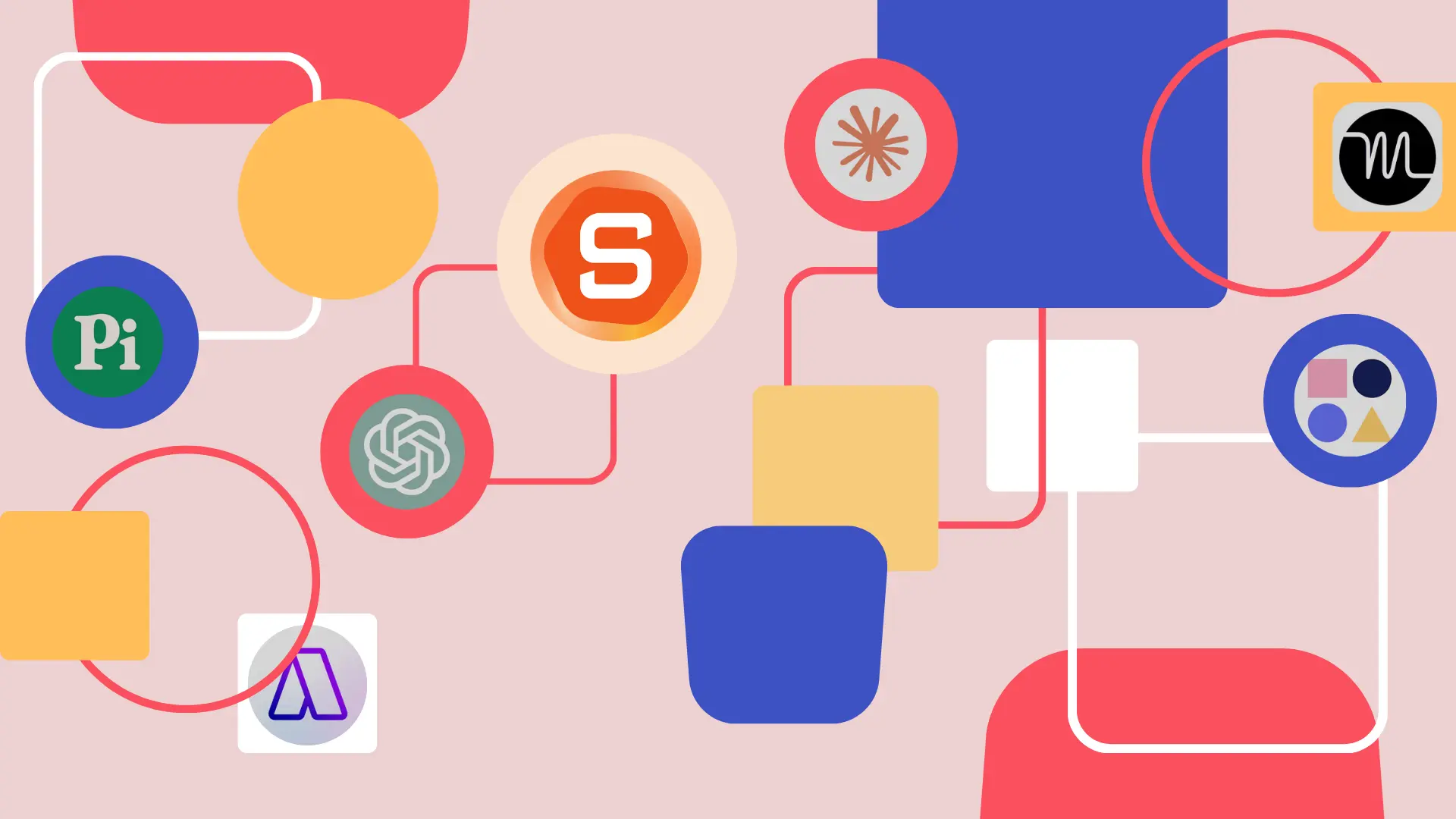Personal Knowledge Management: To Infinity & Beyond

We’re all overloaded with information. As an knowledge worker, entrepreneur, researcher, especially if you have ADHD, it can feel like you’re constantly swimming in a sea of emails, reports, meeting notes, and even ideas that hit us out of nowhere
So here’s the thing: You don’t need more information. You need a better way to handle the knowledge you already have.
The ability to manage this information effectively—to organize, retrieve, and act on it when needed—is what separates those who stay ahead from those who fall behind.
In today’s fast-paced environment, mastering personal knowledge management is crucial for maintaining focus, driving innovation, and making informed decisions.
I. What is Personal Knowledge Management?
At its core, knowledge management (KM) is the practice of collecting, organizing, and using knowledge in the most efficient way possible. It’s not just about storing information—it’s about ensuring the right knowledge reaches the right person at the right time.
In the context of your workflow, KM means knowing how to quickly find the information you need, make connections between different insights, and use those connections to drive progress.
When you do it right, you stop feeling overwhelmed and start making moves that drive the work forward.
II. Why is Knowledge Management Important?
If you’re managing multiple projects, research papers, or business ventures, you’re juggling countless pieces of information. Without a proper system, you may waste time trying to find a critical detail, miss key insights, or feel mentally drained from constantly trying to remember everything.
Knowledge management helps you:
- Reduce Information Overload: By categorizing and organizing data, KM helps streamline your thought process, cutting through the mental clutter.
- Enhance Decision-Making: Having easily accessible, organized knowledge empowers you to make better decisions, grounded in facts and previous insights.
-
- Boost Creativity: When information is well-managed, it’s easier to connect ideas from different areas, leading to more creative and innovative solutions.
-
- Improve Focus: By reducing the time spent hunting for information, you can dedicate more mental energy to high-impact tasks—especially valuable for those with ADHD, where distractions can easily derail focus.
III. Expanding Your Information Base

The key to mastering knowledge management lies in expanding and enriching your information base while keeping it organized and actionable. Here are some strategies to help you do just that:
1. Collect Knowledge from Multiple Sources
Don’t limit yourself to one source of information. Diverse perspectives fuel richer insights. Whether you’re reading academic papers, attending webinars, networking with peers, or even listening to podcasts, expanding your sources of information gives you a wider knowledge base to draw from.
But the challenge here is keeping track of all this data. Instead of letting it become scattered across different platforms or documents, find a system that allows you to capture and consolidate it in one place.
2. Organize Knowledge Effectively
Merely collecting knowledge isn’t enough—you need to make it easily retrievable. Classify and categorize your notes in a way that makes sense for you, whether that’s by project, theme, or priority. This ensures that when you need a piece of information, it’s only a few clicks away instead of buried under layers of files.
This mainly applies to the traditional way of doing PKMS. In the new era, however, you can utilize AI for this
3. Use Contextual Connections
One of the most powerful aspects of effective knowledge management is the ability to link different ideas together. Insights rarely exist in isolation—they often overlap, building on one another to create a more comprehensive understanding.
By connecting your notes, you begin to see relationships between ideas that may not have been immediately obvious. This is particularly important for entrepreneurs and researchers who are constantly innovating, as these connections can lead to new solutions or strategies.
4. Regularly Revisit and Refine Your Knowledge
Knowledge management isn’t a set-it-and-forget-it process. Your information base should evolve with you. As new insights are gained, revisit your existing knowledge to refine and update it. This ongoing curation keeps your base relevant and ensures that you’re always working with the most up-to-date information.
5. Make Your Knowledge Accessible
For knowledge workers, especially those with ADHD, having a system that makes it easy to retrieve knowledge quickly and without distraction is essential. If you’re constantly searching for a note or trying to recall an idea, you lose focus and waste valuable time.
Saner.AI is an intuitive, accessible knowledge management system that helps you stay on track, extract insights quickly without the burden of organizing every piece of information.
Here’s how Saner.AI helps:
- Capture Instantly: Whether it’s a passing thought, an article, or a key point in a book you’re reading—Saner.AI lets you grab that info without interrupting your flow.
-
- Link It All Together: Forget about searching through endless tabs or losing your train of thought while searching for a file. Saner.AI connects ideas, so you can easily see how different insights relate to each other.
-
- Minimize Context Switching: ADHDers thrive on hyper-focus but often fall victim to distractions. Saner.AI reduces context-switching—you spend less time scrambling to find information and more time working on what matters most.
-
- Stay Organized Without Effort: You don’t need to remember where everything is. Saner.AI’s AI means you can retrieve information easily, when and where you need it.

IV. How Personal Knowledge Management Fuels Success
Managing your personal knowledge base isn’t just about keeping your thoughts organized—it’s about unlocking your potential to be more creative, more productive, and more focused in your work. For entrepreneurs, researchers, and directors, especially those dealing with ADHD, effective knowledge management leads to:
- Better Decision-Making: With organized information at your fingertips, making strategic decisions becomes easier and more informed.
- More Creativity: By connecting ideas from different domains, you open yourself up to discovering innovative solutions that others might overlook.
- Increased Efficiency: Instead of wasting time searching for information, you can immediately act on it, boosting your overall productivity.
- Reduced Stress: The mental burden of trying to keep track of everything manually is overwhelming. A well-managed knowledge system lightens that load, freeing you up to focus on high-priority tasks.
V. Knowledge Management in Action
Imagine this: you’re working on multiple projects, each requiring access to different data, insights, and resources. With a solid knowledge management system in place, you can quickly pull up relevant notes, cross-reference ideas, and spot patterns that lead to breakthrough insights. You move from being overwhelmed by information to having it at your command.
While there are many tools available to help you manage your knowledge, the key lies in finding one that fits your workflow and supports your goals.
VI. Final Thoughts: Take Control of Your Knowledge
Knowledge management isn’t just for large organizations—it’s a critical skill for individuals looking to enhance their personal productivity and success. For entrepreneurs, researchers, etc building and expanding your information base is key to staying ahead, sparking innovation, and reducing overwhelm.
Take control of your knowledge by developing a system that works for you. With a well-managed information base, you’ll not only keep track of what matters—you’ll also gain the clarity and focus to act on it when it counts.



